Wonderful place to get the help you need, i would recommend incorporating more mindfulness changed my life.
About Wellcome Manor Family Services
There are two phases of treatment available, with the first phase lasting about 90 to 120 days long and the second phase lasting 30 to 90 days long. The timeframe for the length of treatment will depend on a client’s care plan and their treatment needs.
The organization strives to provide patients with a comfortable setting as they recover so clients get their own bedrooms. In individual therapy the main treatment approach utilized is dialectical behavioral therapy (DBT). This program helps clients by addressing any underlying trauma or emotional pain that fuels an addiction. This therapeutic approach also teaches clients skills that can help with long term recovery, such as emotional regulation, distress tolerance, and interpersonal effectiveness.
In addition to individual therapy other services that will be provided are group therapy, medication management and mental health assessments. Some of the group sessions available are women’s issues groups, recovery support group education and multi faceted educational groups.
I like that this facility also offers alternative forms of treatment such as therapeutic recreation and expression through art. The daycare onsite is licensed to take care of children up to age eight. Families of a loved one are allowed to visit on the weekends. Visitors under age 18 need to be accompanied by a parent or guardian and visitors 18 years or older need to provide a government issued photo ID.
Latest Reviews
Thank you for taking the time to share your experience. We are truly sorry to hear about the frustrations and concerns you encountered during your visits. What you’ve described does not reflect the standard of care, professionalism, or consistency we work hard to uphold at Wellcome Manor Family Services.
Families play an important role in the recovery process, and you deserve clarity, respect, and a welcoming environment each time you visit.
Thank you again for your honesty. We are committed to improving our processes, supporting families with compassion, and providing a safe, consistent, and caring environment for everyone we serve.
Thank you so much for this review. We are so happy to hear of your positive experience with Wellcome Manor. We are thankful to be a part of your journey and that WMFS had a positive impact on your life!
Rehab Score
Gallery
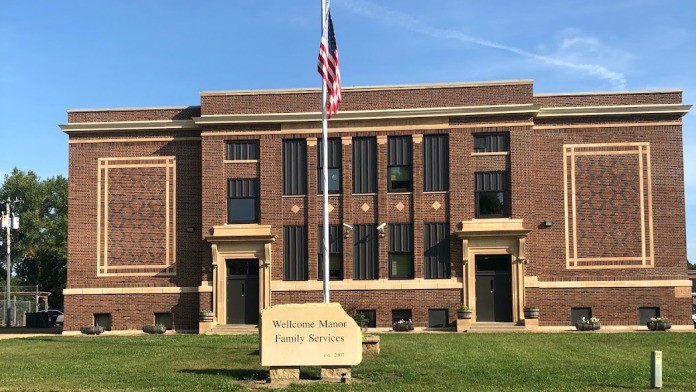
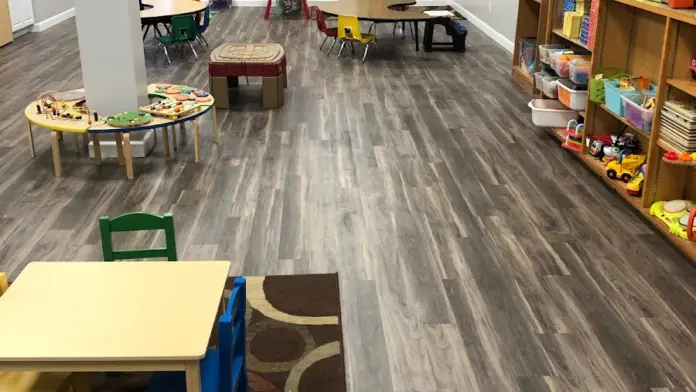
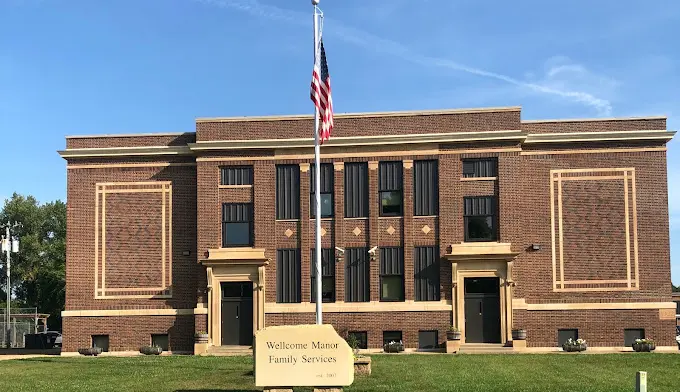
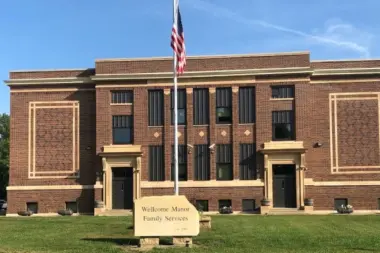
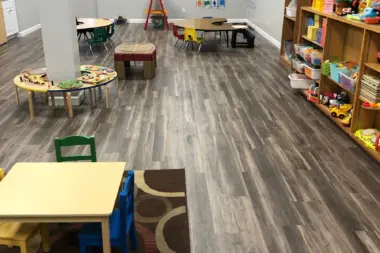
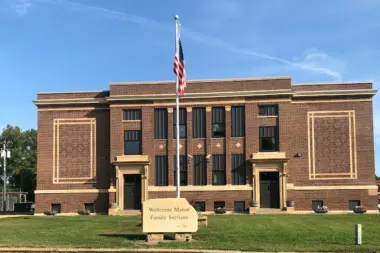
Other Forms of Payment
Private insurance refers to any kind of healthcare coverage that isn't from the state or federal government. This includes individual and family plans offered by an employer or purchased from the Insurance Marketplace. Every plan will have different requirements and out of pocket costs so be sure to get the full details before you start treatment.
Self-pay involves paying for treatment out of your own pocket. You can use savings or credit, get a personal loan, or receive help from family and friends to fund your treatment. If you don't have insurance or your insurance plan doesn't cover a specific program, self-pay can help ensure you still get the care you need.
Medicaid is a state based program that helps lower-income individuals and families pay for healthcare. Medicaid covers addiction treatment so those enrolled can use their coverage to pay for rehab. When a program accepts Medicaid the client often pays very little or nothing out of their own pocket.
Medicare is a federal program that provides health insurance for those 65 and older. It also serves people under 65 with chronic and disabling health challenges. To use Medicare for addiction treatment you need to find a program that accepts Medicare and is in network with your plan. Out of pocket costs and preauthorization requirements vary, so always check with your provider.
Military members, veterans, and eligible dependents have access to specific insurance programs that help them get the care they need. TRICARE and VA insurance can help you access low cost or no cost addiction and mental health treatment. Programs that accept military insurance often have targeted treatment focused on the unique challenges military members, veterans, and their families face.
Addiction Treatments
Levels of Care
Drug and alcohol addiction often takes a heavy toll on one's body. Over time, a physical dependence can develop, meaning the body physiologically needs the substance to function. Detox is the process of removing drugs and/or alcohol from the body, a process that can be lethal if mismanaged. Medical detox is done by licensed medical professionals who monitor vital signs and keep you safe, healthy, and as comfortable as possible as you go through detox and withdrawal.
Residential treatment programs are those that offer housing and meals in addition to substance abuse treatment. Rehab facilities that offer residential treatment allow patients to focus solely on recovery, in an environment totally separate from their lives. Some rehab centers specialize in short-term residential treatment (a few days to a week or two), while others solely provide treatment on a long-term basis (several weeks to months). Some offer both, and tailor treatment to the patient's individual requirements.
Treatments
The goal of treatment for alcoholism is abstinence. Those with poor social support, poor motivation, or psychiatric disorders tend to relapse within a few years of treatment. For these people, success is measured by longer periods of abstinence, reduced use of alcohol, better health, and improved social functioning. Recovery and Maintenance are usually based on 12 step programs and AA meetings.
Drug addiction is defined as an inability to stop using drugs even though it causes negative consequences in your life. Drug rehab in Minnesota provides treatment for drug addiction in a variety of settings including inpatient treatment and outpatient treatment.
Many of those suffering from addiction also suffer from mental or emotional illnesses like schizophrenia, bipolar disorder, depression, or anxiety disorders. Rehab and other substance abuse facilities treating those with a dual diagnosis or co-occurring disorder administer psychiatric treatment to address the person's mental health issue in addition to drug and alcohol rehabilitation.
Opioid rehabs specialize in supporting those recovering from opioid addiction. They treat those suffering from addiction to illegal opioids like heroin, as well as prescription drugs like oxycodone. These centers typically combine both physical as well as mental and emotional support to help stop addiction. Physical support often includes medical detox and subsequent medical support (including medication), and mental support includes in-depth therapy to address the underlying causes of addiction.
Substance rehabs focus on helping individuals recover from substance abuse, including alcohol and drug addiction (both illegal and prescription drugs). They often include the opportunity to engage in both individual as well as group therapy.
Programs
Adult rehab programs include therapies tailored to each client's specific needs, goals, and recovery progress. They are tailored to the specific challenges adult clients may face, including family and work pressures and commitments. From inpatient and residential treatment to various levels of outpatient services, there are many options available. Some facilities also help adults work through co-occurring conditions, like anxiety, that can accompany addiction.
Clinical Services
Therapists often use cognitive behavioral therapy in Minnesota to treat substance use disorders because it can help clients quickly identify challenges and ways to cope with them. Its structured, specific methods require fewer sessions than other types of therapy.
When conducting motivational interviewing in Minnesota, the interviewer encourages clients to discuss their reasons for making changes and their need for change in their lives. The interviewer's role is to listen and reflect, to evoke conversation about commitment to change.
Trauma therapy addresses traumatic incidents from a client's past that are likely affecting their present-day experience. Trauma is often one of the primary triggers and potential causes of addiction, and can stem from child sexual abuse, domestic violence, having a parent with a mental illness, losing one or both parents at a young age, teenage or adult sexual assault, or any number of other factors. The purpose of trauma therapy is to allow a patient to process trauma and move through and past it, with the help of trained and compassionate mental health professionals.
Staff
Karen Klabunde
Facility Director
Jasmin Boelter, LADC
Counselor Supervisor
Heather Defries
Admissions Coordinator
Scott Vaske
Outreach Director
Lauren Duran
Admissions Coordinator
Contact Information
114 Pleasant St W
Garden City, MN 56034